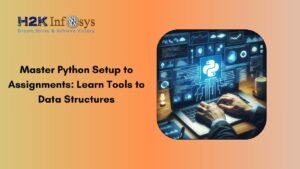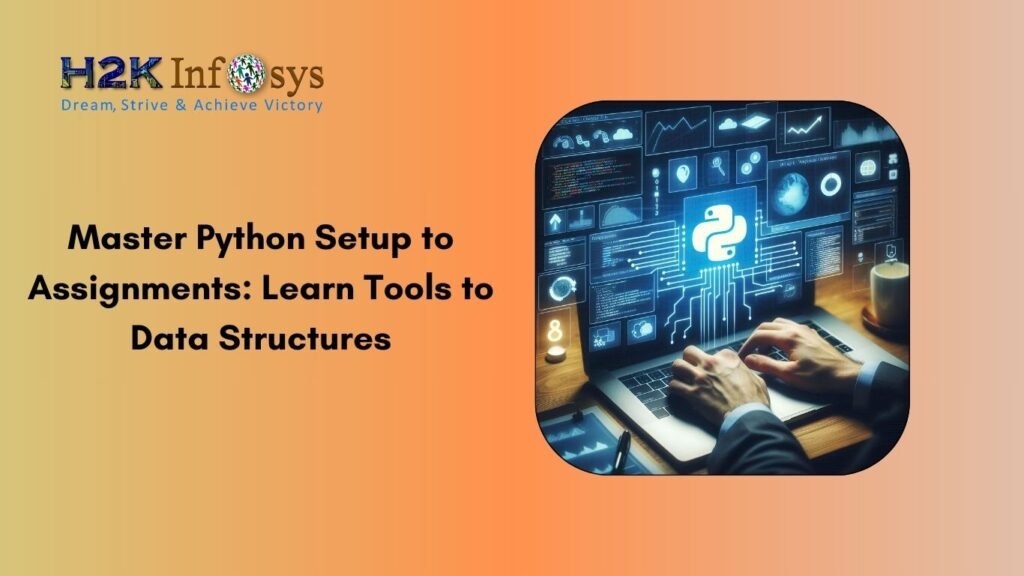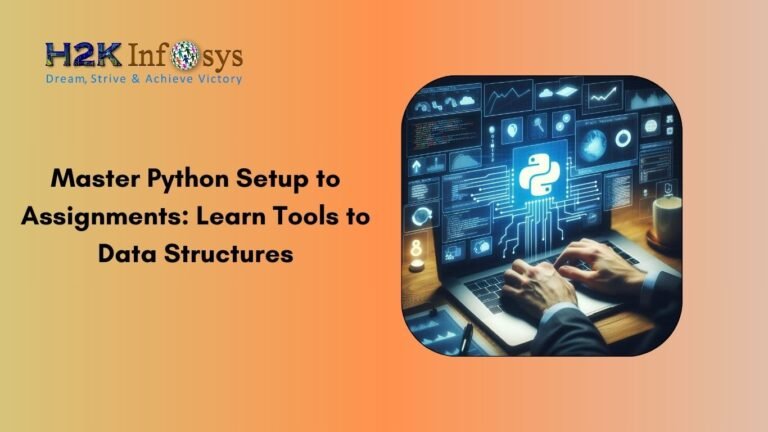Introduction
In today’s cloud-driven business world, Salesforce has become a cornerstone technology for customer relationship management (CRM). With thousands of companies relying on this platform, the demand for skilled professionals has surged. Among these roles, the Salesforce Developer stands out as a critical and high-paying career path.
But what exactly does it take to become a Salesforce Developer? Whether you’re from a technical background or switching from another career, this guide will walk you through everything you need to know, including essential skills, certifications, hands-on tools, and how Salesforce Online Training can fast-track your journey.
What Is a Salesforce Developer?
A Salesforce Developer is a technical expert who customizes and extends Salesforce functionalities to meet business needs. They use tools like Apex (Salesforce’s proprietary programming language), Visualforce, Lightning components, and APIs to create tailored solutions.
Key Responsibilities:
- Develop and customize Salesforce applications.
- Build automation using Process Builder and Flows.
- Integrate Salesforce with third-party platforms using APIs.
- Write triggers, classes, and test classes using Apex.
- Collaborate with admins and business analysts.
- Ensure code quality with testing frameworks.
- Stay updated with seasonal Salesforce releases.
Being a Salesforce Developer means not just writing code but also understanding business workflows and translating them into scalable solutions. They play a vital role in enhancing CRM usability for sales, service, and marketing teams.
Why Choose a Career as a Salesforce Developer?
1. High Demand and Salaries
According to Glassdoor, Salesforce Developers in the U.S. earn an average of $100,000 annually. The demand continues to grow as more organizations move to cloud-based CRM solutions.
2. Global Career Opportunities
Salesforce is used globally. With a valid salesforce training certification, you can apply for jobs anywhere in the world. Many multinational firms look for certified developers to manage their Salesforce environments.
3. Flexible Entry Points
You don’t need a Computer Science degree. Many successful Salesforce Developers started through Salesforce certification training programs and self-learning.
4. Job Satisfaction
Working with a powerful platform, solving real-world problems, and being a part of digital transformation can be highly rewarding. Developers often report high satisfaction due to visible impact and continuous learning.
Step-by-Step Guide to Becoming a Salesforce Developer
Step 1: Understand the Basics of Salesforce
Before diving into coding, understand what Salesforce is. Start with the core platform features, objects, relationships, and its CRM capabilities.
Learn About:
- Salesforce CRM
- Standard and Custom Objects
- Data Models
- Reports and Dashboards
- Record types and Page layouts
- Business process automation
This foundational knowledge is covered in most salesforce online training programs. Building a strong base ensures you’re able to appreciate development concepts later.
Step 2: Take Salesforce Admin Course
Why start with administration? Because understanding configuration is crucial for development. It enables you to understand what can be done via point-and-click tools versus what requires code.
Salesforce Admin skills include:
- User management
- Security models (roles, profiles, permissions)
- Workflow automation
- Reports & dashboards
- Validation rules
- Record-level security
Most salesforce certification courses recommend starting here to make your transition into development smoother.
Step 3: Learn Salesforce Development Languages
Apex:
- Object-oriented and similar to Java
- Used to create triggers, classes, and asynchronous processing
- Commonly used for automation beyond standard tools
Visualforce:
- For building custom user interfaces (UI)
- Often replaced now by Lightning Web Components but still relevant for legacy apps
Lightning Components:
- Modern UI development
- Works with JavaScript and HTML
- Lightning Web Components (LWC) are preferred for performance and reusability
Enroll in salesforce training courses that include practical exercises in Apex and LWC.
Step 4: Complete Hands-On Projects
Theory without practice is incomplete. Use a Salesforce Developer org (a free sandbox account) to work on real-world projects like:
- Building custom apps for task tracking
- Creating automation flows for sales lead assignment
- Integrating external systems via REST API for real-time data sync
- Implementing user-friendly dashboards
Hands-on learning is a core component of any effective salesforce training online course. It builds confidence and practical exposure.
Step 5: Earn Salesforce Developer Certification
Salesforce offers official certifications like:
- Salesforce Platform Developer I (foundational coding knowledge)
- Salesforce Platform Developer II (advanced logic, integrations, testing)
Benefits of certification:
- Validates your skills
- Boosts resume credibility
- Increases job opportunities
- Helps you stand out in competitive markets
Through H2K Infosys’ salesforce certification training, you can prepare efficiently for these exams with access to practice tests, live sessions, and project-based guidance.
Tools and Platforms Used by Salesforce Developers
1. Salesforce CLI
Command-line tool for development, authentication, and deployment tasks.
2. Visual Studio Code (VS Code)
The preferred Integrated Development Environment (IDE) for writing Apex and Lightning Components. Salesforce Extensions enhance its usability.
3. Workbench
Online tool used for API queries, metadata deployments, and troubleshooting.
4. Data Loader
Desktop application to import/export data in bulk, useful for handling large data migration tasks.
5. Developer Console
Browser-based tool inside Salesforce UI for testing, debugging, and code execution.
These tools are critical for every Salesforce Developer, and they are taught in hands-on salesforce training certification programs.
Real-World Applications of Salesforce Development
Case Study 1: Retail CRM Customization
A U.S.-based retail company needed a custom inventory management module. A Salesforce Developer built a Lightning App, set up custom objects, and created automated restocking alerts. The project saved over 300 hours per year in manual work and improved inventory accuracy by 85%.
Case Study 2: Healthcare Integration
In a healthcare project, the Salesforce Developer integrated electronic health records (EHR) into Salesforce using REST APIs. This ensured secure, role-based access to patient data for clinical staff.
These case studies show how sales force training must focus on practical use cases that solve real business problems.
Top Skills Needed to Succeed as a Salesforce Developer
1. Apex Programming
Understand how to use classes, triggers, SOQL, and asynchronous methods like Batch Apex or Future methods.
2. Lightning Web Components (LWC)
For building fast, responsive, and reusable UI components.
3. Salesforce Data Modeling
Proper design of objects, fields, and relationships ensures app scalability.
4. API Integration
Connect Salesforce with payment gateways, third-party apps, and ERPs using REST and SOAP APIs.
5. Version Control (Git)
Track changes in your codebase and collaborate with teams efficiently.
6. Debugging and Testing
Master the use of debug logs, test classes, and assertion-based testing to ensure code reliability.
A structured salesforce course from H2K Infosys covers all these core competencies step by step.
Long-Term Career Growth Opportunities
Once you’ve worked as a Salesforce Developer, you can grow into roles like:
- Technical Architect: Designs system-level solutions using Salesforce.
- Salesforce Consultant: Works closely with clients to advise on best practices.
- Salesforce Solution Architect: Balances business needs with technical implementation.
- Team Lead or Engineering Manager: Manages teams and projects.
Each step forward benefits from continued learning through salesforce training courses and certifications.
Challenges and How to Overcome Them
1. Steep Learning Curve
Salesforce is vast. The trick is to go module by module. H2K Infosys breaks down the learning journey in manageable stages starting from the Salesforce admin course to developer-level training.
2. Keeping Up with Updates
Salesforce releases updates three times a year (Spring, Summer, Winter). Subscribe to release notes, Trailhead updates, and join developer communities like Salesforce Stack Exchange.
3. Debugging Issues
Effective debugging is a must-have skill. Use Developer Console, logs, and Test Methods to simulate and correct issues.
How H2K Infosys Helps You Become a Salesforce Developer
1. Structured Learning Path
Courses are structured from basic to advanced, ensuring no prior knowledge is needed to begin. You’ll progress from admin to development step-by-step.
2. Live Instructor-Led Salesforce Training Classes
Our sessions are interactive, ensuring doubts are cleared in real time.
3. Salesforce Admin Training and Placement
Get job-ready with our placement assistance, resume reviews, and mock interviews.
4. Salesforce Certification Courses
We provide complete guidance, learning materials, and mock exams to help you earn your certifications.
5. Flexible Learning Modes
Whether you prefer weekend classes or weekday batches, our salesforce training online is accessible from anywhere.
Key Takeaways
- A Salesforce Developer creates, customizes, and integrates CRM solutions using Apex, Visualforce, and Lightning Web Components.
- Begin your journey with the salesforce admin course to learn configuration before diving into code.
- Work on real-world projects to build confidence.
- Earn Salesforce certifications to validate your expertise.
- Enroll with H2K Infosys to gain practical, placement-focused training.
Conclusion: Ready to Become a Salesforce Developer?
Becoming a Salesforce Developer is a rewarding journey filled with opportunities to innovate, solve problems, and build a successful tech career. With the right training and dedication, you can join the growing community of Salesforce professionals.
Start your journey today with H2K Infosys and get certified, skilled, and job-ready!




























